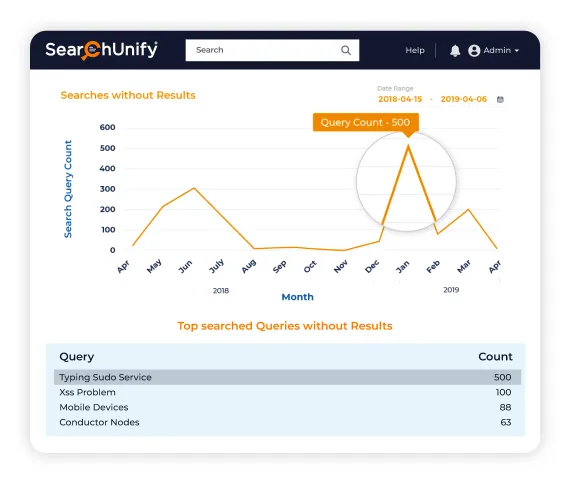The Multi-Agent Thing That Actually Works
Instead of building one AI that tries to do everything and fails spectacularly, SearchUnify built ten different bots that are actually good at their specific jobs. The AI Support Agent handles L1 tickets and knows when to escalate to humans. The AI Escalation Manager predicts which cases are about to explode before they do. The AI Knowledge Agent keeps your documentation from becoming completely outdated.

This infographic shows the top 5 ways AI agents actually help in support - notice they focus on real problems like "effortless ticket management" instead of vague "AI transformation"
The Support Agent actually knows when it's confused instead of bullshitting its way through answers. When it hits something it can't handle, it passes everything to the right specialist instead of making customers repeat their whole story again.
Analytics That Don't Lie
The analytics dashboard actually shows useful metrics instead of vanity numbers. CSAT, resolution time, deflection rates - the stuff that matters when your VP asks why support costs keep going up.
More importantly, it tracks which AI responses users actually found helpful vs. which ones they immediately ignored. This matters because most AI support tools generate responses that sound great but solve nothing. The audit system captures every interaction, so you can see exactly where things went sideways.
Sentiment Detection That's Not Complete Garbage
The platform actually analyzes customer sentiment and routes angry customers to experienced agents instead of letting them rage at a confused L1 who just started last week. This is combined with RAG that pulls from your actual documentation instead of hallucinating solutions.
When someone says "this piece of shit software isn't working," the system recognizes this as high-priority negative sentiment and routes accordingly, rather than treating it like a casual inquiry about features.
Integration Hell: Somewhat Reduced
Look, Salesforce Agentforce, Zendesk, ServiceNow, Slack, SharePoint - they have pre-built connectors for the platforms you're probably already stuck with.
The single-tenant architecture means your data doesn't get mixed up with other customers' data, which is surprisingly not standard in this industry. They handle SOC 2, HIPAA, GDPR compliance, so your security team won't immediately shut down the project.
What About When It Breaks?
Here's the thing about enterprise AI platforms: they all break eventually, usually at 3am when you're on call. SearchUnify's approach is to fail gracefully - when the Knowledge Agent shits itself because someone uploaded a 200MB PDF full of scanned images, the other agents keep working. I learned this the hard way when our knowledge base integration broke during a product launch because someone decided to upload 400 training videos at once, maxing out the processing queue. While we were frantically trying to fix the Knowledge Agent, at least the Support Agent kept routing tickets instead of everything going down together.
Anyway, when the AI realizes it's confused (instead of hallucinating solutions), it escalates to humans with actual context instead of just throwing a generic "something went wrong" error.
Their knowledge graph architecture means that even when your documentation is a mess (and it always is), the AI can still find relevant information. This is crucial because most enterprise knowledge bases are organizational disasters maintained by people who left the company three years ago.

Their community interface - notice the clean search and the lack of seventeen different navigation menus
The Numbers (That Might Actually Be Real)
Look, most AI platforms promise the moon and deliver a crater. Here's what actually matters: Automation Anywhere's implementation shows how this works at real enterprise scale. They were drowning in support tickets and their knowledge base was a disaster. After deployment, they stopped wasting time hunting for answers and actually started resolving tickets instead of bouncing them around departments.
The key insight from their case study: the AI could connect information across their fragmented systems - Salesforce, Confluence, random SharePoint sites, and those PDFs that live in someone's email. Instead of agents hunting through seventeen different systems, the AI serves up relevant information that actually helps solve problems.
Real Talk: Why This Might Not Suck
Most AI support tools fail because they're built by people who have never worked in support and think every customer is polite and every problem has a clear solution in the knowledge base. SearchUnify actually understands that support is a shitshow - customers are pissed, your knowledge base is maintained by people who left two years ago, and half your documentation contradicts the other half. Their agents are designed to work with this reality instead of pretending your organization is perfect.
The multi-agent approach means that when something breaks, it's usually just one component instead of the entire system going down like a house of cards. And when you inevitably need to debug what went wrong, you can trace the handoffs between agents instead of diving into one massive black box.
Plus, their swarming model documentation shows they actually understand modern support workflows, not just the old "escalate everything to tier 2" model that wastes everyone's time.




